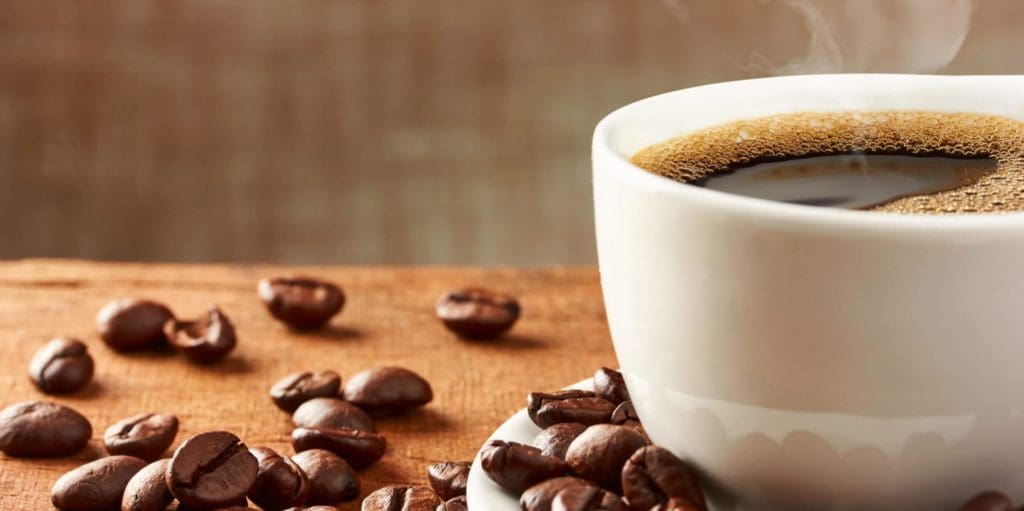If you’re a one-cup-of-coffee in the morning person, a shot-of-espresso-in-the-afternoon kind of soul, or even a non-coffee drinker, you might be interested in the connection between coffee and chronic pain.
Research has always been back and forth when it comes to the effects of coffee. Some researchers assert that coffee can help alleviate many health issues, while others maintain that it’s the root of all your problems.
So, who’s right? We’ve compiled some research to help you decide for yourself whether the relationship between coffee and chronic pain is good or bad.
Coffee May Decrease Pain Sensitivity
One 2017 study suggested that that in the long run, drinking coffee may help your chronic pain. The research, conducted by Beth Israel Deaconess Medical Center (BIDMC) and Boston Children’s Hospital suggested that tiredness can increase your pain sensitivity.
In this study, researchers kept mice awake for as long as 12 hours per session or six hours for five consecutive days, an amount of time that moderately sleep-deprived the mice. Mice with less sleep had a significant difference in pain sensitivity.
Interestingly enough, the mice that received caffeine and/or modafinil, had reduced pain hypersensitivity. However, caffeine had no effect on mice who did not experience sleep deprivation. This suggests that not only does chronic sleep loss increase pain sensitivity, but also that moderate stimulants can decrease feelings of discomfort.
If You’re Sleep Deprived, Coffee May Be More Effective Than Painkillers
If you have chronic pain, there’s a good chance that you have trouble sleeping. But as we’ve established, the more tired you are, the higher your chances of pain sensitivity. And unfortunately, some OTC medications you use may not lessen your pain as much as you’d like.
The same 2017 study showed that common painkillers like ibuprofen did not lessen pain caused by sleep loss in mice. Even morphine had no effect on this increased pain sensitivity. Meanwhile, caffeine did block pain hypersensitivity. This suggests that instead of taking painkillers when sleep-deprived, chronic pain sufferers may benefit from breaking the pain cycle by getting sleep if possible and if not, promoting wakefulness until sleep can be achieved.
Can Coffee Lessen Reliance on Pain Medications?
In response to the above information, Kiran Maski, an expert in sleep disorders at Harvard Medical School, said “Many patients with chronic pain suffer from poor sleep and daytime fatigue, and some pain medications themselves can contribute to these comorbidities. This study suggests a novel approach to pain management that would be relatively easy to implement in clinical care.”
Drinking coffee is a much easier, not to mention tastier, regimen to follow than relying on pain medication. Instead of sorting through your many pain killers, look into the alternative option of a cup of coffee. Of course, this only applies to your sleep-deprived state. If you’re feeling terrible after a good night’s rest, this may not be the solution.
How the study proves its claims
The study started off by measuring the exact amount of sleep each mouse was normally getting. Then, they started giving the mice stimuli when they were supposed to be asleep, such as toys and activities. This scenario resembles when we stay up late watching TV.
Once the mice were sleep deprived for five days the scientists started testing their pain sensitivity with heat, cold and pressure. They found that after five days of sleep deprivation, the mice were more sensitive to their pain, even to simple activities like jumping.
The scientists then administered common painkillers, such as ibuprofen, to the mice. But the pain killers were not effective at blocking the pain. Then, caffeine was used to promote wakefulness. This awareness and wakefulness decreased pain sensitivity significantly. Caffeine was proven much more effective than the administered painkillers.
Researchers concluded that sleep-deprived patients would benefit from more sleep. But obviously this is hard to achieve for a lot of people suffering from chronic pain. Fortunately, this research also concluded that when sleep is hard to get, caffeine may be a good alternative.
These findings show great strides in pain research. Ask your doctor if coffee would be a good addition to your diet.
What is your experience with coffee and chronic pain?
Tell us about your pain journey in the comments.
What topics related to coffee and chronic pain would you like to see us explore?
Email us at info@painresource.com with your ideas.
Are you on Facebook?
